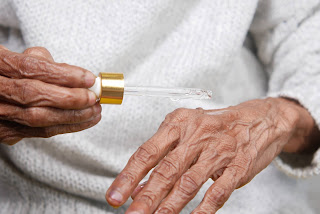How to relieve gastric pain?
What is Gastritis ?
Gastritis is an irritation, inflammation, or, in severe instances, erosion of the stomach's lining.
Compared to nonerosive gastritis, which results in inflammation, erosive gastritis can result in bleeding and stomach ulcers but is much less prevalent.
Usually, it affects individuals between the ages of 15 and 50.
Long-lasting signs and symptoms of chronic gastritis include nausea and lack of appetite.
Typical signs of acute gastritis are severe and may last for a few days.
There are some silent cases of gastritis (have no symptoms)
While some types of gastritis can be managed through changes in lifestyle or food, others may need medication or other medical interventions.
Although they are much less prevalent, some types of gastritis can present with much more serious symptoms. Although erosive gastritis usually doesn't result in much inflammation, it can cause gastrointestinal bleeding or ulcers. The mucosal barrier that protects the stomach is destroyed, and the cells that line the stomach begin to atrophy. Chronic atrophic gastritis is a rare type of gastritis that is typically brought on by the helicobacter pylori (H. pylori) bacteria. It can increase the risk of developing stomach cancer. Chronic, atrophic gastritis may be related to pernicious anemia, another gastrointestinal disease.
What are the common symptoms ?
- Indigestion, or dyspepsia, causes discomfort or pain in the upper abdomen. Sometimes the pain either gets worse or shows up after eating.
- Loss of appetite is a particularly prevalent sign in those with chronic gastritis.
- Nausea - usually accompanies a lack of appetite
- Vomiting is a common symptom of all types of gastritis. Vomit that contains blood may be a sign of an ulcerated stomach lining. Vomit can be red or more like coffee grounds depending on how severe the ulceration is.
- Bloating
- Weight loss
- Blood in the feces is a melaena. The blood makes the stool appear dark or black and tar-like rather than red.
What are the causes?
- helicobacter pylori infection
Helicobacter pylori infection is the primary cause of peptic ulcers as well as duodenal ulcers. Although diet alone can manage some types of gastritis, H. pylori infection should always be treated.
- Long-Term Medication Use
If taken for an extended length of time, nonsteroidal anti-inflammatory drugs (NSAIDs) used to treat or control pain can cause gastritis. If taken regularly, aspirin, ibuprofen, naproxen, and other over-the-counter pain relievers can all cause gastritis.
- Persistent Stress
Due to an accumulation of too much stomach acid, worry has long been linked to digestive and gastrointestinal problems, including sickness, vomiting, indigestion, and heartburn or gastroesophageal reflux. This accumulation of acid can impact the lining of the stomach, causing both acid reflux symptoms and inflammation and irritation.
- Alcohol and Tobacco Use
Drinking too much alcohol causes the stomach to create more acid, which in turn causes the stomach lining to become inflamed and cause the symptoms of gastritis. Additionally, it has been demonstrated that tobacco use raises the incidence of digestive problems. Additionally, smoking seems to make an H. pylori infection worse.
- Immune Disorders and Allergies
An allergic response can result in eosinophilic gastritis, a type of gastritis. There is presently no known cause for this allergic reaction. In individuals with weakened or otherwise impaired immune systems, viral and fungal infections can cause gastritis.Pernicious anaemia, another name for autoimmune gastritis, is a persistent autoimmune condition that can cause iron and B-12 deficiencies in addition to anemia. Gastritis is another complication of Crohn's illness.
- Long-Term Medication Use
- Persistent Stress
- Alcohol and Tobacco Use
- Immune Disorders and Allergies
Are there tests to diagnose gastritis ?
How to treat gastritis?
- Diet
- Lifestyle modifications,
- Medication







Comments
Post a Comment